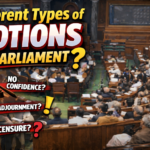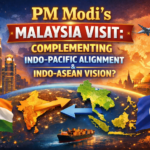Basic Exchange and Cooperation Agreement (BECA): Indo-US Relations

India and the United States signed the Basic Exchange and Cooperation Agreement (BECA) ; India will get real-time access to American geospatial intelligence and access to maps, satellite images, topographical and aeronautical data, which will aid in navigation and enhance the accuracy of automated systems and weapons like missiles and armed drones.
INDO- US RELATIONS
India-U.S. bilateral relations have developed into a “global strategic partnership“(2016) which is broad-based and multi-sectoral, covering trade and investment, defence and security, education, science and technology, cyber security, high-technology, civil nuclear energy, space technology and applications, clean energy, environment, agriculture and health. India and the US have reached an increasing level of strategic convergence on bilateral, regional and global issues.
The bilateral relationship underwent a significant transformation when the US first agreed to ‘work to achieve full civil nuclear energy cooperation’ with India in July 2005. India was granted a waiver by the Nuclear Suppliers Group to commence civil nuclear trade
A political level 2+2 dialogue has been institutionalized to oversee the host of working level bilateral and multilateral consultations, covering everything from space and cyber cooperation to defence technology and maritime security.
The proposed Quad exercise between the US, Japan and India and Australia in November 2020 reflects the maturity and deepening of Indo-US relations encompassing bilateral and multi lateral issues.
DEFENCE RELATIONS
Defence relationship has emerged as a major pillar of India-U.S. strategic partnership with the signing of ‘New Framework for India-U.S. Defense Relations’ in 2005 and the resulting intensification in defence trade, joint exercises, personnel exchanges, collaboration and cooperation in maritime security and counter-piracy, and exchanges between each of the three services. The Defence Framework Agreement was updated and renewed for another 10 years in June 2015.
The US recognition of India as a ‘Major Defence Partner’ in 2016, and the signing of three defence cooperation agreements between 2016 and 2019. The US is India’s second-largest source of arms after Russia with India–US defence trade increasing significantly.
In recent years India purchased Super Hercules C-130J military transport planes, P8I Poseidon Long Range Maritime Patrol and Anti-Submarine aircraft,AH-64E Apache helicopters, MH-60 Romeo Seahawk helicopters.
Basic Exchange and Cooperation Agreement (BECA), along with the two agreements signed earlier — the Logistics Exchange Memorandum of Agreement (LEMOA) and the Communications Compatibility and Security Agreement (COMCASA) — completes a troika of “foundational pacts” for deep military cooperation between the two countries.
LEMOA was the first of the three pacts to be signed in August 2016. LEMOA allows the militaries of the US and India to replenish from each other’s bases, and access supplies, spare parts and services from each other’s land facilities, air bases, and ports, which can then be reimbursed.
Communications Compatibility and Security Agreement (COMCASA)
The pact, signed in September 2018 allows the US to provide India with its encrypted communications equipment and systems so that Indian and US military commanders, and the aircraft and ships of the two countries, can communicate through secure networks during times of both peace and war; it will facilitate “interoperability” between their forces — and potentially with other militaries that use US-origin systems for secure data links.
IRRITANTS
India view and support Multipolar world order but US is more inclined to Bilateral world view especially in economic parlance. India and the US have had differences on WTO issues and bilateral trade, investment and IPR issues. New Delhi and Washington are also engaged in a sort of mini trade war with Trump even referring India as the tariff king.
India’s draft Personal Data Protection law and draft e-Commerce Policy
India’s price caps on the US’ pharmaceutical imports,
Trump administration ended India’s status under the GSP, of which India was the biggest beneficiary, with Indian exports to the US accounting for “over a quarter of the goods that got duty-free access into the US in 2017.
the US administration has levied steel and aluminium tariffs, revoked India’s benefits under the Generalised System of Preferences programme, contemplated limiting Indians’ H1-B visas quota
new points of friction have arisen related to digital payments, data localisation, and e-commerce.
President Trump’s Iran policy has adversely impacted New Delhi’s business and strategic interest with Tehran.




0 Comments